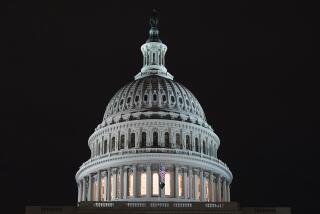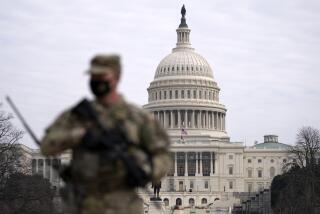House leaders ditch plans to buy passenger jets
- Share via
WASHINGTON — House Democratic leaders said Monday that they would not force the Pentagon to buy four new passenger jets used to ferry senior government officials.
Democrats have been criticized for adding $330 million to the Air Force’s 2010 budget to buy the jets, even though the Pentagon didn’t request the money.
Two of the planes would be the C-37 -- the military equivalent to the fancy Gulfstream G550 -- and cost taxpayers $130 million at a time when lawmakers have made villains of bailed-out auto executives who rely on corporate jets to travel.
“If the Department of Defense does not want these aircraft, they will be eliminated from the bill,” said Rep. John P. Murtha (D-Pa.), chairman of the panel that approved the additional spending.
A spokesman for House Speaker Nancy Pelosi (D-San Francisco) said she supported the decision, which was expected to face resistance in the Senate.
It’s not unusual for Congress to ignore the Pentagon’s budget proposal and add money for certain programs, particularly if the purchase might benefit their constituents.
The $636-billion defense spending bill, passed last month by a 400-30 vote, included money for cargo jets that Defense Secretary Robert M. Gates said weren’t needed and for an alternative engine for the next-generation F-35 Joint Strike Fighter that the Pentagon said was a waste of money.
The bill also included almost $200 million to buy three C-37 jets, two more than the Pentagon requested.
The C-37 is considered a cushy ride that is typically reserved for VIP government officials, including members of Congress.
The House measure directed that the two C-37 jets be located at Andrews Air Force Base in the Washington suburbs -- a favored departure point for congressional trips.
The House also added money for two C-40 jets, which are similar to the Boeing 737. Whereas the Pentagon plan would have spent $220 million, the House wanted to spend $550 million.
The added spending, first reported this month by the Capitol Hill newspaper Roll Call, prompted a swift backlash by budget watchdogs.
More to Read
Get the L.A. Times Politics newsletter
Deeply reported insights into legislation, politics and policy from Sacramento, Washington and beyond. In your inbox three times per week.
You may occasionally receive promotional content from the Los Angeles Times.










